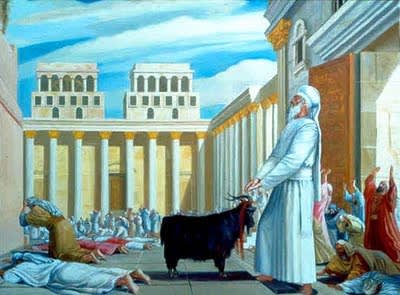It is a zoo out there – just as it is a zoo in here: it is a zoo out there, in the universe which we live in; and it is a zoo in here, in the universe which lives in us.
Predator and Prey circle each other in an ageless, primitive dance, the first to stumble the last to breathe. Beast and Animal prowl the desecrated streets, in search of unfair game. Survival of the fittest is here the motto, spray painted on its thick walls and tattooed into its thicker hide. Survival of the fittest indeed, but they never bothered to mention what exactly they are surviving and who exactly is considered the fittest.
Selfish is the Animal, biting into another’s ideas so that it can look intelligent, chewing its way through another’s heart so that it can convince itself that it feels. On the face of it, Man and Animal look alike: both are of flesh and blood; both are of hair and skin; both are of feeling and intellect. Both walk on legs and both look with eyes. Both are of physical appearance; both with physical needs; both with physical wants.
The difference is – one is only of that while the other has something more.
Much more.
The Animal rolls in the mud, wallows in it, sees it for what it is and loves it. The Man crawls through the mud, passes it by, sees it not as a pile of filth but as a rough whose ugly face contains diamonds. The Animal sniffs the body while the Man knows that within it there is a soul.
The Animal is selfish because it sees others how it sees itself: alone and lonely, a weak addict feeding off the weaknesses it has been instrumental in creating. The Man sees others as a part of himself, sees his own potential in another’s potential, sees another’s greatness as an inspiration for he himself to be great – and vise versa. (The weaknesses within himself, those parts that can always be made better, he sees as a means with which he can reach out to another, to ask for help, to welcome an embrace.)
But when the Man wishes to come close, when he wishes to rectify anything broken and love that which seems immune, when the Man wishes to take the ordinary and make it extraordinary, the Man must take the Animal and bring the Animal, take the Animal from the wild habitat to which it thinks it is indigenous and bring it to a place of its true native state, where the Animal passion and Animal bliss are channeled to be passionate and blissful in what is holy, what is pure.
You see, the Man without the Animal is merely a vision without a canvas, merely a dream without the tools or means of implementation – and, in the universe which we live in and which lives in us, a dream without fulfillment is as substantial as fulfillment without a dream.
The Man needs the Animal to breath, eat, sleep, walk – the Man himself is beyond these mundane things – and the Animal needs the Man to infuse the breathing, eating sleeping, walking, with Purpose and Divine passion.
This is the ultimate offering: offering the Animal – bringing it close – to the Divine purpose for which it was created.
Mendel Jacobson is a writer, poet and journalist living in Brooklyn. His weekly poetry can be seen at jakeyology.blogspot.com
The words of this author reflect his/her own opinions and do not necessarily represent the official position of the Orthodox Union.

